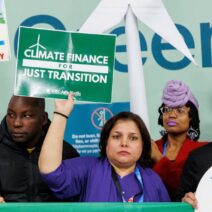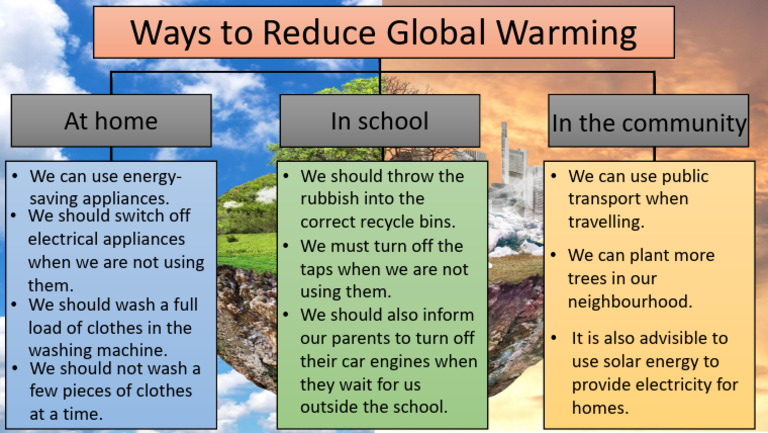Global warming is not just a distant threat; it is an immediate and omnipresent challenge that demands our attention. Rising temperatures, unpredictable weather patterns, and dwindling natural resources are all symptoms of an earth in distress. While this can seem overwhelming, there are effective actions individuals can take to combat this pressing issue. A shift in perspective is essential, as each small action contributes to a larger collective impact. Here we will explore how personal choices can lead to a healthier planet.
Understanding Individual Impact
It is imperative to realize that each decision we make reverberates through the ecological lattice of our world. From the food we consume to the transportation choices we embrace, our actions have consequences. The average person’s carbon footprint is substantial; however, it is possible to ameliorate this impact significantly. By grasping the magnitude of our individual influence, we can adopt behaviors that benefit the environment.
Eliminating Single-Use Plastics
The prevalence of single-use plastics is a major contributor to pollution. These items, designed for consumption convenience, often end up in landfills and oceans, causing irreparable harm to marine life and ecosystems. To combat this, one can take simple yet effective measures: transition to reusable bags, bottles, and containers. Not only do these alternatives diminish plastic waste, but they also often offer a more durable and financially savvy option over time.
The Power of Plant-Based Diets
Our food choices wield immense power in the fight against global warming. The livestock industry is a significant emitter of greenhouse gases. By adopting a more plant-centric diet, even if it is only part-time, individuals can substantially reduce their carbon footprint. Explore vibrant, plant-based meals that are not only delicious but also nourish the earth. This shift encourages sustainable farming practices and lessens the demand for resource-intensive animal agriculture.
Energy Conservation at Home
Every household has the potential to become a bastion of energy efficiency. Simple actions, such as switching to LED light bulbs, unplugging devices when not in use, and using energy-efficient appliances, can significantly reduce household energy consumption. Make it a habit to conduct regular energy audits of your home. Implementing smart thermostats and insulating windows are more advanced but equally effective steps. Each kilowatt saved compacts the demand for fossil fuels, thus contributing to a decrease in carbon emissions.
Embracing Renewable Energy
The transition from fossil fuels to renewable energy sources is imperative for combating global warming. Explore opportunities to switch to renewable energy providers or, if feasible, invest in solar panels for your home. This not only diminishes reliance on carbon-emitting resources but also promotes a shift in energy production toward more sustainable practices. Generating one’s own power is a powerful statement in the fight against climate change.
Transportation Alternatives: Rethinking Mobility
The transportation sector is a major contributor to greenhouse gas emissions. Individuals can make significant changes by rethinking their methods of commuting. Opt for public transport, carpooling, biking, or walking whenever possible. Not only do these alternatives reduce carbon emissions, but they also promote healthier lifestyles and less congested urban spaces. Advocate for better infrastructure that supports non-motorized transport and scrutinize your own travel habits to identify potential reductions.
Advocacy and Community Engagement
Change can be wielded collectively. Engage in community activities that aim to promote sustainability. Volunteer for local environmental organizations, participate in tree-planting events, or advocate for local policies that prioritize renewable energy and conservation. By rallying together, community efforts can lead to significant environmental impacts that ripples beyond the individual. Educate friends and family on sustainability practices, expanding the movement through influence and awareness.
Mindfulness in Consumer Choices
Adopt a conscientious approach to consumption. Investigate the brands you support—do they actively engage in sustainable practices? Choose to buy from companies that prioritize eco-friendly operations, use sustainable materials, and to commit to reducing waste. The ripple effect of conscious consumerism can influence market practices, encouraging more businesses to adopt green initiatives. Seek products with minimal packaging and those made from recycled materials, forging a marketplace that aligns with environmental values.
Education: Knowledge as a Tool
Staying informed is crucial in the fight against climate change. Educate yourself about the science behind global warming and the latest innovations in sustainability. Awareness of the impact of fossil fuels, deforestation, and industrial practices can arm you with the knowledge needed to nurture sustainable dialogues. Research local environmental challenges to better understand how issues are interconnected and ways you can contribute towards solutions.
In Conclusion: A Call to Action
Combating global warming is not solely the responsibility of governments or corporations; every individual has a role to play in this momentous endeavor. By engaging in these simple yet profound actions, one can profoundly influence the state of the world. Such actions may appear small at first, but collectively, they embody a formidable force capable of steering our planet towards a more sustainable future. With newfound awareness and responsibility, each of us can become a driving force against global warming, ensuring a healthier planet for generations to come.








